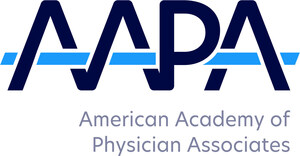
ALEXANDRIA, Va., Nov. 6, 2025 /PRNewswire/ -- The application window has officially closed for the federal Rural Health Transformation (RHT) Program, a $50 billion investment aimed at revitalizing healthcare in rural America. As states position themselves to qualify for these competitive grants, many are considering efforts to modernize physician associate (PA) practice laws. Doing so is one of the few state-level policy changes the Centers for Medicare and Medicaid Services is pushing that can directly improve RHT scoring.
In South Carolina, that urgency collided with committee action this week. Yesterday, a subcommittee of the Senate Medical Affairs Committee heard testimony on S.44, a PA modernization bill championed by the South Carolina Academy of PAs (SCAPA). The legislation aims to remove the state's restrictive practice laws while expanding access to high-quality, cost-effective care for patients.
If enacted as written, S.44 would move South Carolina from a "reduced" to an "optimal" practice environment on the American Academy of Physician Associates (AAPA) practice map, positioning the state to receive the maximum 100 points possible for PA practice modernization under the RHT scoring framework.
In her testimony to the subcommittee, Sondra DePalma, DHSc, PA-C, DFAAPA, vice president of Reimbursement and Professional Practice at AAPA, stated the following:
"When it comes to RHT, many of the scoring criteria are fixed or difficult to influence. Modernizing PA practice laws is one of the few scoring criteria fully within South Carolina's control, and it can be done now. By passing S.44 as written, the state can strengthen its score in next year's assessment and, more importantly, ensure more patients in rural and underserved communities get timely access to care. This is a tangible step with real benefits for South Carolinians and to the state's budget."
DePalma also cited several studies showing the overwhelming evidence backing the quality, safety, and benefits of PA care, including the Medicare Payment Advisory Commission's conclusion that "care provided by PAs produces health outcomes that are equivalent to physician-provided care." DePalma noted that PA practice laws have been shown to improve patient access and provide cost-effective care.
South Carolina's legislative push is one example of the broader national movement to modernize PA practice environments. With practice laws more reflective of modern-day healthcare delivery, PAs can better meet growing demands for care and address workforce shortage gaps across the country. Patients are supportive of these efforts, as 91% agree PA practice laws should be updated to allow states and healthcare systems to fully utilize their healthcare workforce.
As states continue to struggle with provider shortages, modernizing PA practice laws is emerging as a policy change that the federal government is incentivizing state lawmakers to explore to be eligible for future federal funding.
AAPA continues to advocate for legislative changes nationwide that empower PAs to deliver care where it's needed most. To learn more about these efforts, visit the organization's PA Practice Modernization page.
About the American Academy of Physician Associates (AAPA)
AAPA is the national professional organization for all physician associates/assistants (PAs). PAs are licensed clinicians who practice medicine in every specialty and setting. Trusted, rigorously educated and trained healthcare professionals, PAs are dedicated to expanding access to care and transforming health and wellness through patient-centered, team-based medical practice. Learn more about the profession at aapa.org and engage through Facebook, LinkedIn, Instagram, and X.
SOURCE American Academy of Physician Associates







Share this article